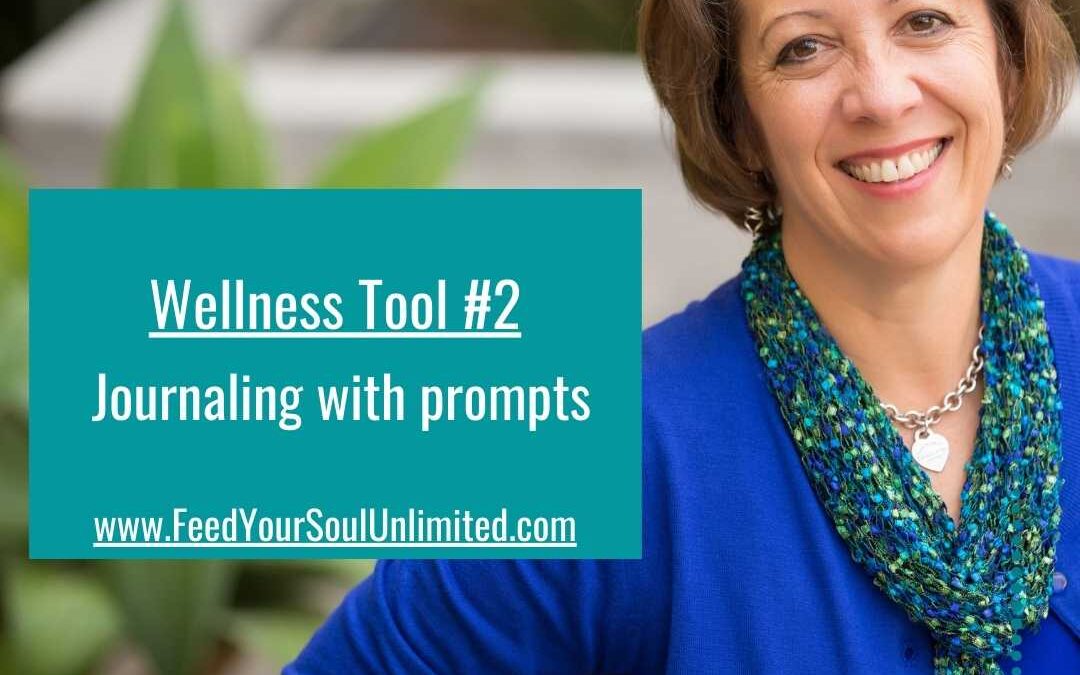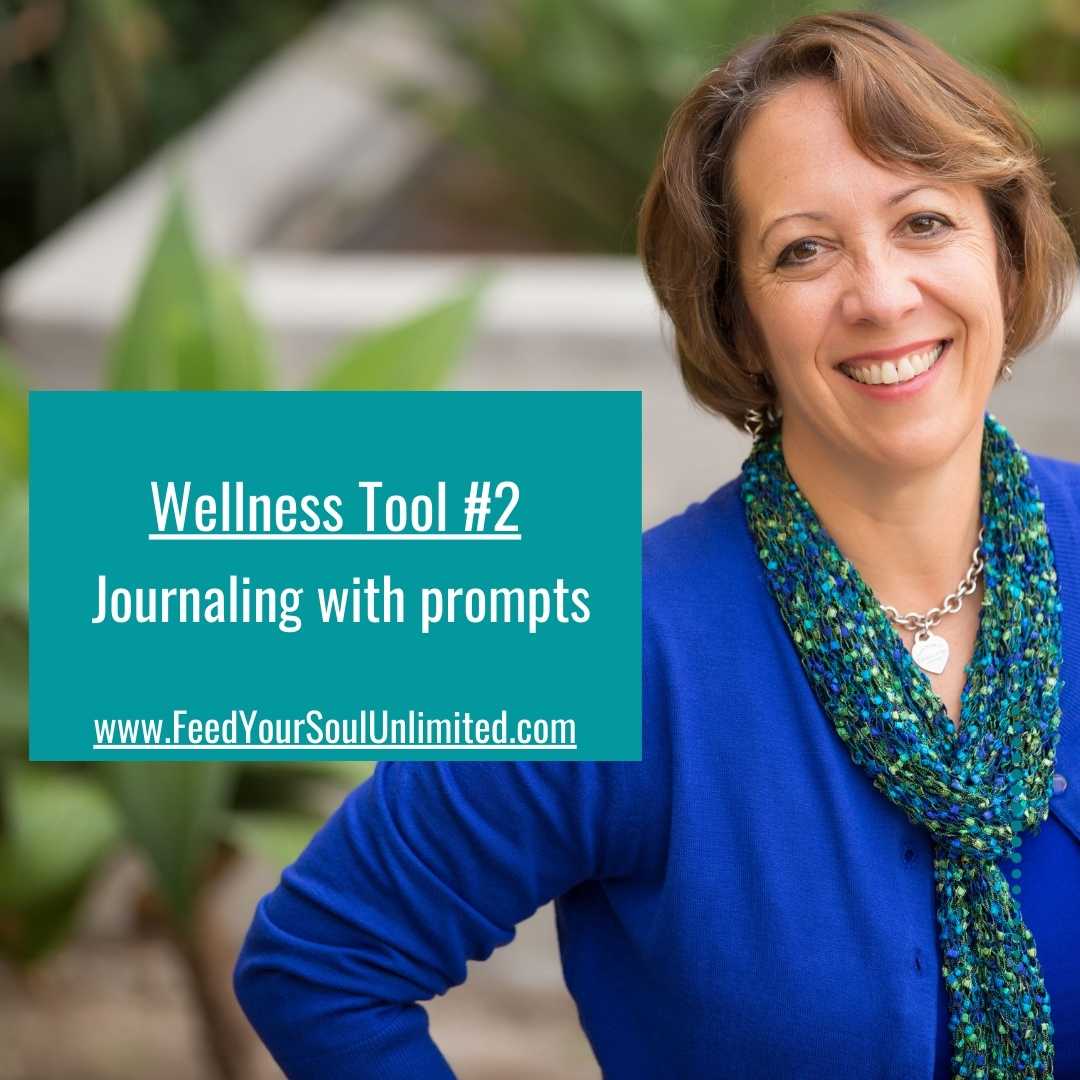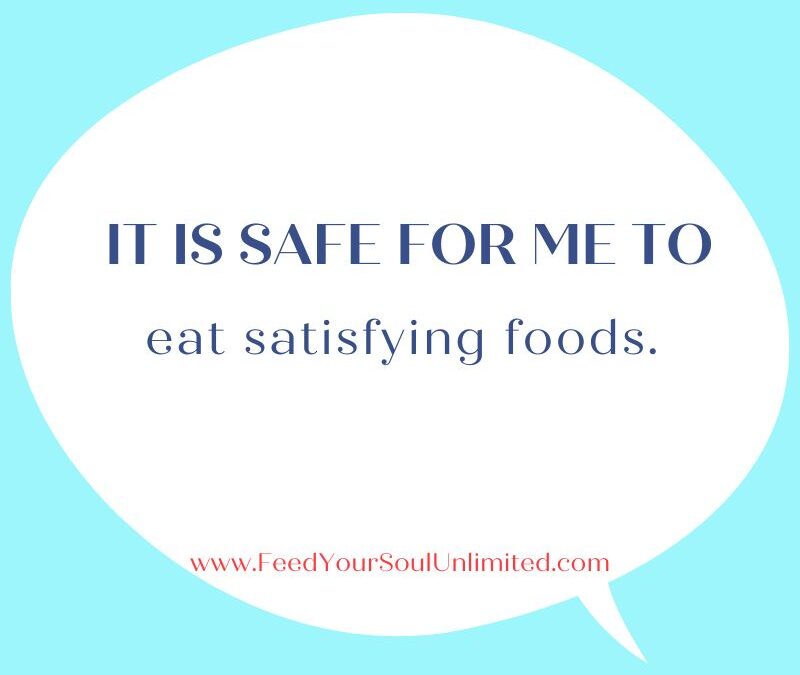
Intuitive Eating and the Satisfaction Factor
Do you have Food Satisfaction after you eat?
Whether you are satisfied or not is very personal and individual: each person is different and has different requirements.
We have often learned to deny our satisfaction, especially when we have been following the diet culture.
In order to look at satisfaction better, let’s examine the definition of satisfaction:
- “Fulfillment of one’s wishes, expectations, or needs, or the pleasure derived from this.”
Can you imagine looking at food as a fulfillment of your wishes, expectations or needs?
Could you see yourself being ok with getting pleasure from food? Often the answer to these questions is NO. Why? We are not allowing ourselves to get pleasure from food.
Intuitive eating asks us to look at the ‘satisfaction factor.” Meaning we chose food because it is satisfying to us!
How radical is that?
Have you ever considered how to be more satisfied with food?
Increasing food satisfaction is a multipronged approach.
Consider some of the qualities you can use to determine food satisfaction:
- Texture: Is the food hard, smooth, crunchy?
- Smell: Is the food pleasant smelling?
- Sound: What is the sound when you bite into the food item?
- Temperature: Is the food hot, spicy, cold, frozen, or room temperature?
- Flavor: Is the food yummy, bland, awful, ok?
- Appearance: What does the food look like? Does it look appealing?
- Do you get full with this food?
- What are your surroundings? Appealing, attractive or bland?
We tend to discard the satisfaction factor, because we have been trained that if the food is appealing, yummy, filling: then it must be “bad” food.
Bad food is determined to be:
- High in calories
- Lots of fat.
- Too much salt.
- Full of sugar.
In order for food to be “good” food it is:
- Diet food
- Low calories
- Low in fat
- Fitts into whatever diet you are on.
To increase your food satisfaction further consider the following questions:
- Do you taste your food?
- Are you eating too fast?
- Have you eating when you are too hungry?
- Can you eat past enjoyment?
- Is there food enjoyment?
How can you increase your Food Satisfaction and Intuitive Eating?
First ask yourself, What do I really want to eat?
Next you can ou can look at the food qualities like:
- How will this food sound?
- Does the food look appealing?
- How does this food feel in my mouth?
- Do I want it to be hot or cold?
- What will my body feel when I am done eating this?
- Which emotions might show up after I am done?
Then start eating from gentle hunger. Be sure to enjoy your food
After you eat, reflect on the food/satiety.
- Did the food meet my needs?
- Am I satisfied?
- Did I end up not eating what I really wanted?
Satisfaction with food is one way out of overeating and into intuitive eating.
When you are satisfied with the food you feel better physically, emotionally, and mentally.
Being present with feeling of food satisfaction is a gift you can give yourself.
Take some time today, focus on satisfaction with your food. See how it helps you get in touch with your body, so then you are not overeating.
 Kim McLaughlin, MA is a Psychotherapist, Speaker, Author, and Coach who specializes in working with people who suffer from binge eating and emotional eating. She provides therapy to high achieving women in California.
Kim McLaughlin, MA is a Psychotherapist, Speaker, Author, and Coach who specializes in working with people who suffer from binge eating and emotional eating. She provides therapy to high achieving women in California.
Kim is a Certified Intuitive Eating Counselor.
She is the author of the best-selling book Feed Your Soul Nourish Your Life! A Six Step System to Peace with Food and the Amazon #1 Best Selling book Discovery Your Inspiration.
You can find Kim on her podcast Feed Your Soul with Kim and you can find it on all podcast platforms.
Wondering if you are an emotional eater? Sign up for the free Am I an Emotional Eater Quiz.

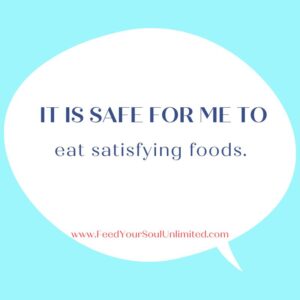
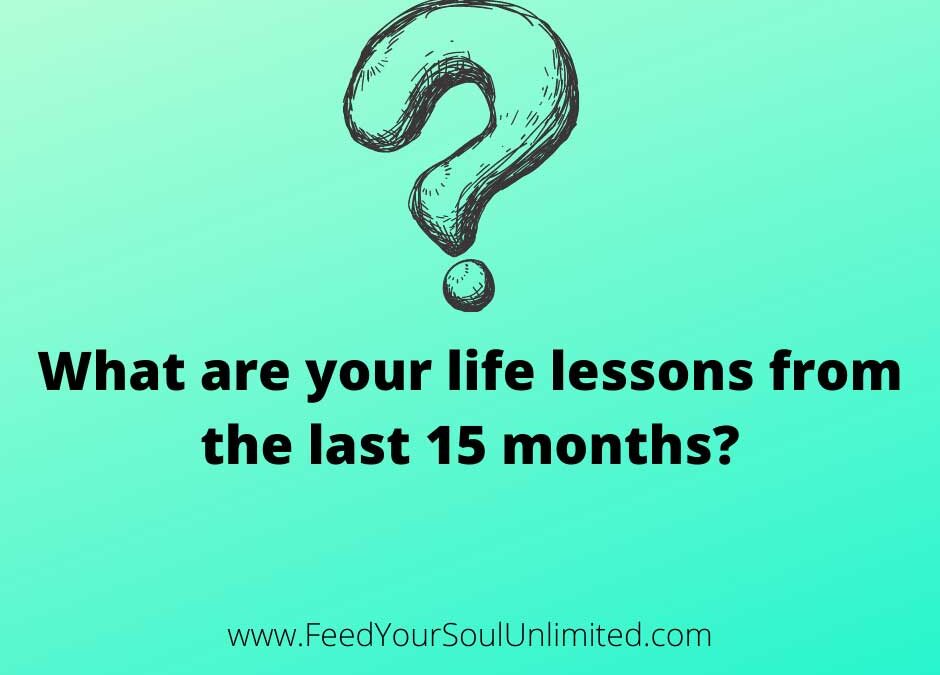
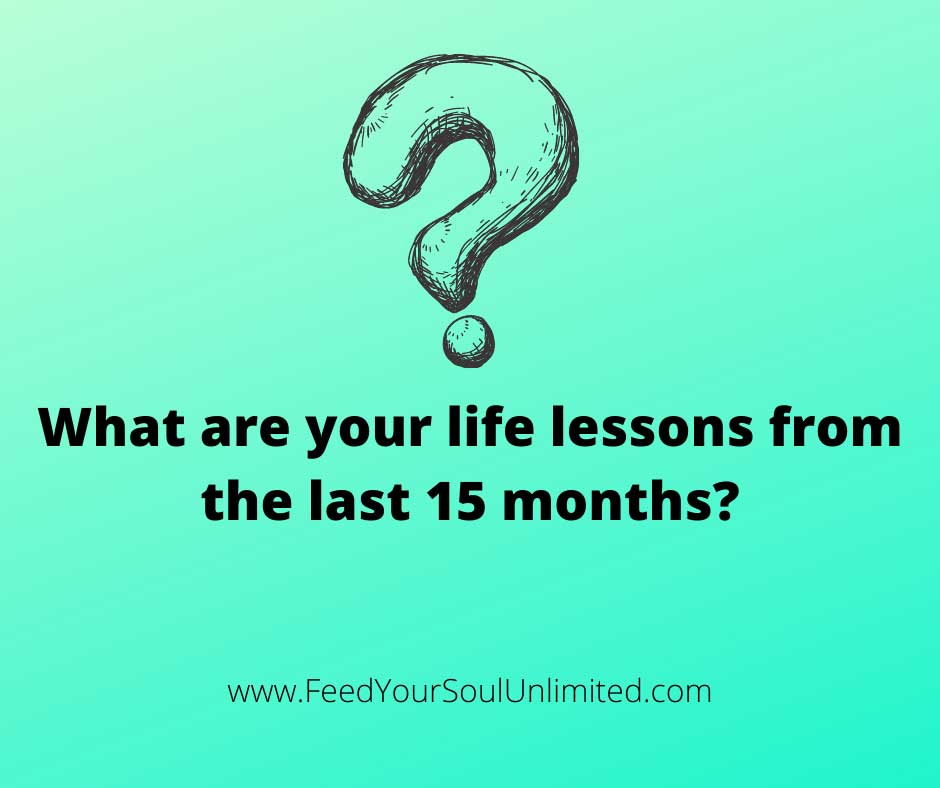
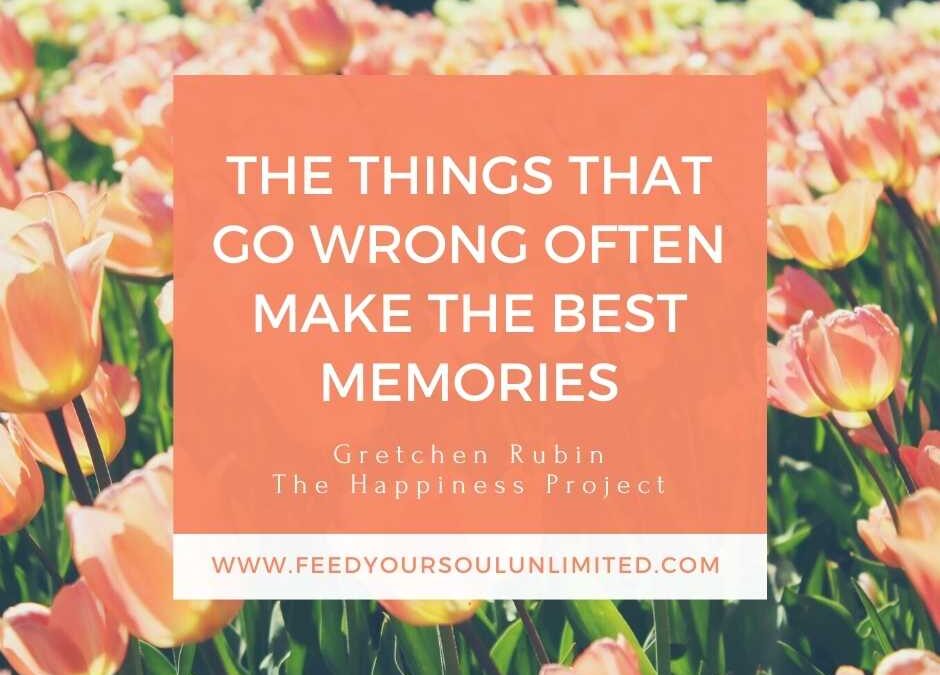
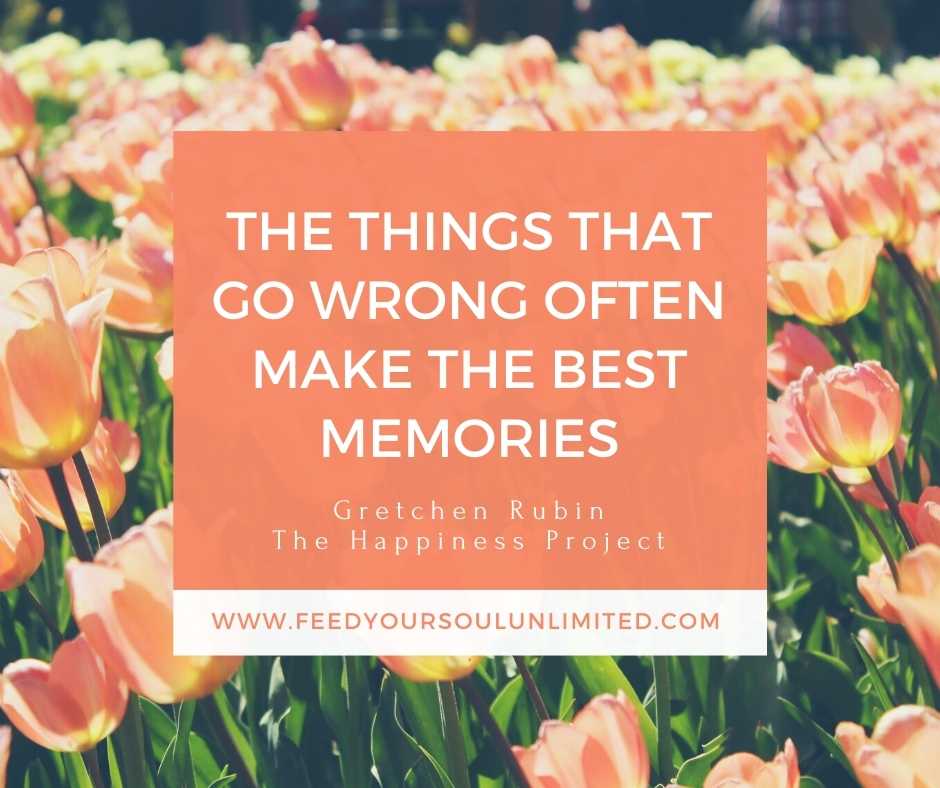
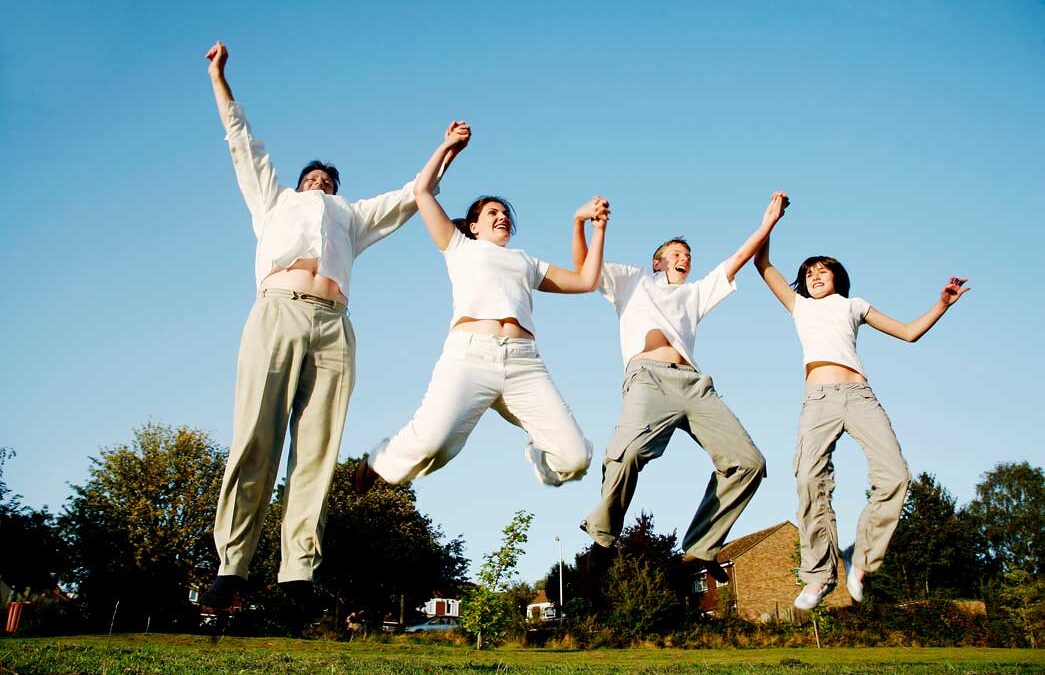
 Not sure how happy you really are? One way to determine your happiness is to take the Subjective Happiness Scale (
Not sure how happy you really are? One way to determine your happiness is to take the Subjective Happiness Scale (